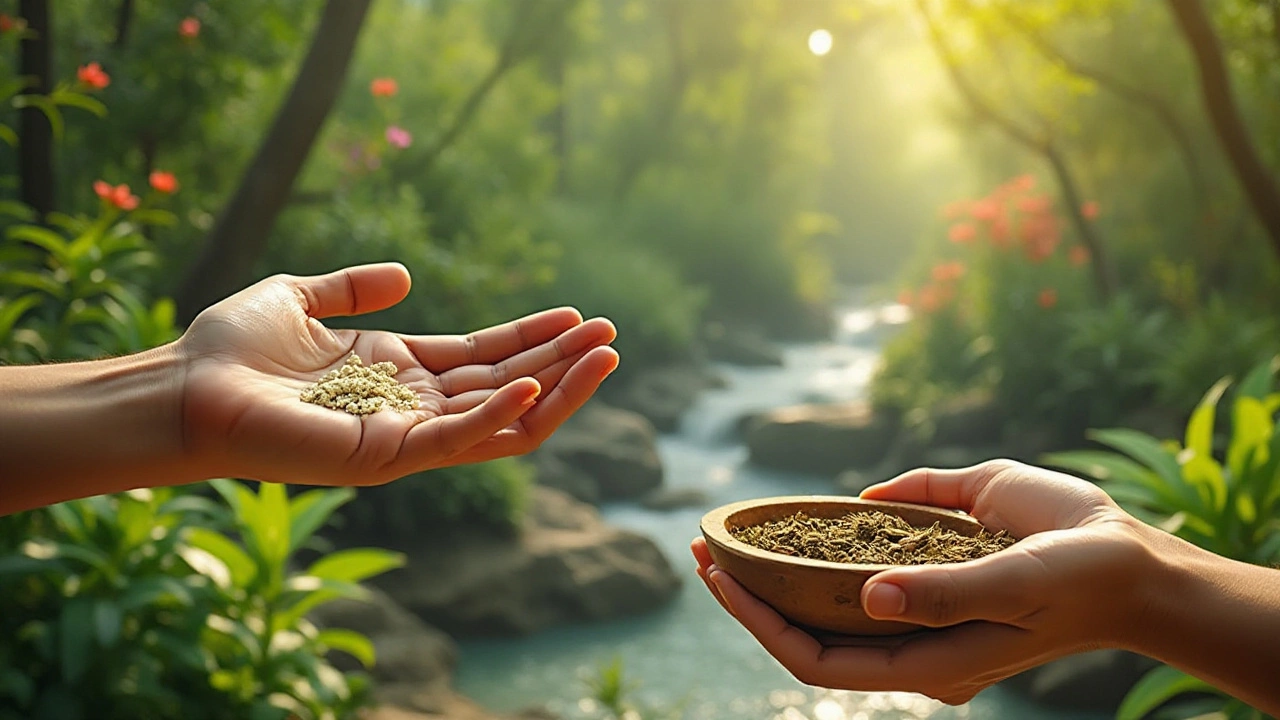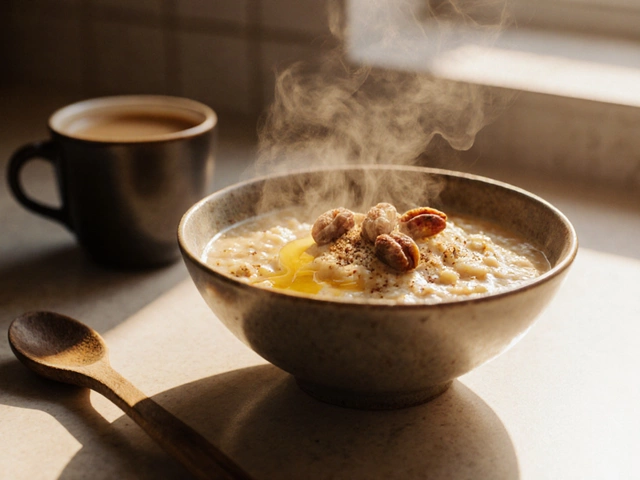Homeopathic medicine presents a unique approach to healing, drawing on the principle of treating like with like. Known for its tailored remedies and minimalistic doses, homeopathy offers an alternative therapeutic path that many individuals have embraced. Yet, it is important to recognize that this distinct practice requires specific adherence to ensure its efficacy.
In a world where complementary medicine is on the rise, Ayurveda also stands out as a trusted medical system with a rich heritage. However, when these two worlds collide, it's crucial to navigate what not to mix with homeopathic remedies to avoid potential interference. Certain foods, beverages, and activities might dampen or alter the effects of these finely tuned treatments.
Bringing awareness to these interactions can help individuals integrate homeopathy into their wellness plans with confidence. The challenge lies in identifying these interactions and employing practical strategies to accommodate both systems holistically. Equipped with the right knowledge, one can nurture health in harmony.
- Understanding Homeopathic Remedies
- Common Interactions and What to Avoid
- Ayurvedic Practices and their Effect on Homeopathy
- Practical Tips for Safe Use
Understanding Homeopathic Remedies
Homeopathy, a therapeutic system conceived in the late 18th century by Samuel Hahnemann, stands out in its unique approach to healing. The core principle of homeopathy operates on the concept of 'like cures like,' where substances that produce symptoms in a healthy individual can be used to treat similar symptoms in an ill person, but in exceedingly dilute forms. This method aims to prompt the body's natural healing processes. To the uninitiated, this can seem counterintuitive, yet it aligns with the idea that the body can self-regulate and heal when given the right signals.
The preparation of these remedies is known as potentization, a process that involves serial dilution and vigorous shaking, termed succussion. It is believed that this process imparts the energetic imprint of the original substance into the solution, despite its physical absence. Critics often cite the dilution levels which typically surpass Avogadro's number, rendering the presence of any molecules of the original substance improbable. Nevertheless, advocates argue that it is this very dilution process that activates the body's ability to cure.
The choice of remedy is highly individualized—one person's remedy might not suit another with seemingly identical symptoms. Homeopaths, practitioners of this discipline, engage in comprehensive consultations, delving deep into the patient's emotional and psychological states, as well as the physical symptoms, to pinpoint the correct remedy. It is a holistic endeavour, intending to engage with the person as a whole rather than isolated symptoms alone.
According to the World Health Organization, homeopathy is used by millions around the globe, notably in regions like India where it continues to be integrated within the public health framework. It can also be intriguing to note that many classical homeopaths assert the remedy’s efficacy does not diminish when mixed with other therapeutic systems. A typical consultation might comment, “Homeopathy employs the body's own healing powers without intervening or overruling it; it enhances, not alters.”
Let’s reflect on the words of George Vithoulkas, a noted authority in homeopathy: "Homeopathy treats the person, not the disease. By strengthening the individual's immune response, it often addresses multiple health issues simultaneously, illuminating paths to overall well-being."
Given the nature of homeopathic remedies, proper management, and consideration of dietary and lifestyle choices play significant roles. It's typically advised to avoid strong flavours, caffeine, as well as other substances within close windows of remedy intake, for maintaining the purity of the treatment’s effects. While homeopathy is not without controversy, it continues to serve as a pillar of complementary medicine today, largely due to its personalized nature and gentle approach.
Common Interactions and What to Avoid
The delicate balance of homeopathic treatments can easily be tipped by various factors, especially when it comes to dietary choices and daily habits. The essence of homeopathy lies in its minute doses and holistic approach, meaning even small changes can significantly affect treatment outcomes. For instance, strong flavors such as coffee, mint, and camphor are notorious for nullifying the effect of many homeopathic medicines. These substances have the potential to overpower the subtle properties of remedies designed to gently stimulate the body's healing mechanisms. Caffeine, in particular, a staple in many daily routines, is seen as a strong antidote due to its stimulating nature. Therefore, reducing coffee intake can be beneficial while undergoing homeopathic treatment.
Equally, certain medicinal substances, particularly those derived from strong herbs like eucalyptus or potent essential oils, can alter the dynamics of homeopathic remedy absorption. It's a wise move to keep a safe distance from such powerful herbal elements when relying on homeopathy for healing. Also, exploring conventional allopathic drugs' impact can reveal potential clashes. Many analgesics and anti-inflammatory drugs can disrupt the effects of homeopathic medicines, so a careful assessment is needed if one is relying on both streams for health benefits. It’s interesting to note that some reports highlight similar interactions with menthol-containing toothpaste, which has led practitioners to suggest switching to a plain variant during the treatment course.
The British Homeopathic Association advises that certain practices can help maximize homeopathic therapy efficacy: 'Avoiding certain foods and habits is an essential part of the homeopathic protocol to prevent medicinal interference.'
Stress levels also play a significant role in the effectiveness of homeopathy, making lifestyle adjustments an important factor to consider. A peaceful routine, regular meditation, and light exercises such as yoga can bolster homeopathic remedies' efficiency by enhancing overall wellbeing. Addressing stress not only optimizes one’s experience with homeopathic treatments but also syncs well with the ayurvedic emphasis on mind-body harmony. Thus, individuals exploring both ayurvedic and homeopathic pathways should focus on creating a serene personal atmosphere, both mentally and physically.
Beyond daily routines, attention is needed for commonly overlooked substances like alcohol and tobacco. Homeopathy thrives on purity and balance, thus alcohol's mind-altering properties and tobacco's toxins can potentially throw this delicate equilibrium off balance. Those who are being treated with homeopathic remedies are often encouraged to limit or completely avoid these substances during their treatment period. Establishing a supportive environment embracing both homeopathy and Ayurvedic philosophies can be beneficial for achieving optimal health outcomes. The integration requires mindful choices and conscientious dedication to lifestyle adjustments, ensuring that one receives the most from these ancient wisdoms. Lastly, trusting your practitioner and maintaining open communication with them allows for a personalized and effective treatment regime.

Ayurvedic Practices and their Effect on Homeopathy
A blend of ancient wisdom and modern understanding, Ayurveda and homeopathy offer intriguing insights into holistic health. These two practices, though seemingly different, often overlap when individuals seek alternatives to conventional medicine. However, to steer through the rich tapestry of these systems, one needs an anchorage in understanding their interactions. Ayurveda, with its roots dating back over 3,000 years, forms a complex system relying heavily on diet, herbal treatments, and specific physical practices. Its profound impact on body constitution—or doshas—dominates the prescription of various treatments. Meanwhile, homeopathy stands distinct with its reliance on highly diluted substances aimed at triggering the body's natural healing processes. While both practices seek balance and healing, their convergences can sometimes clash if not carefully managed.
One of the pivotal considerations when amalgamating these two forms arises from the dietary regimens encouraged by Ayurveda. For instance, Ayurveda places great emphasis on certain foods and spices—such as ginger, ashwagandha, and turmeric—to influence health positively. Yet, from a homeopathic perspective, strong flavors, including caffeine and mint, might undermine the strength of homeopathic remedies. Mint is often present in everyday items like toothpaste or chewing gum, potentially rendering a homeopathic solution less effective. It becomes evident that harmonizing Ayurveda's gustatory prescriptions with the subtleties of homeopathy is essential for a synergistic healing experience.
Moreover, the extensive use of oils in Ayurvedic practice presents another layer of interaction worth noting. Ayurvedic massages and treatments frequently employ aromatic oils that complement the body's medicative processes. These oils can, however, interact with homeopathic remedies, as scents and oils often impact the olfactory sensitivities that homeopathy taps into. Here, advisory input from practitioners like Dr. Peter Fisher, who stated,
"The selection of treatment needs careful tailoring, respecting the unique aspects of each system,"emphasizes a cautionary approach. It points towards gaining an expert's advice when integrating these practices, as both practitioners and patients navigate melding these therapies.
Addressing this complexity, informed choices can smooth the journey of complementary health practices. A key aspect includes staggering the timing of administering Ayurvedic herbs and homeopathic remedies. Establishing a schedule that prevents overlapping might ensure neither practice hampers the other’s efficacy. As these systems emphasize long-term, preventive care, diligence in their application, tailored to individual needs, becomes necessary. Negotiating a personal path through this dual approach demands awareness and a touch of patience, and it symbolizes the intricate harmony that both Ayurveda and homeopathy strive to achieve in holistic healthcare.
Practical Tips for Safe Use
When embracing the holistic paths of homeopathy and ayurveda, blending these modalities wisely can amplify wellness outcomes. To ensure these remedies maintain their effectiveness, one must grasp the subtleties of medicine interactions. First and foremost, timing plays a pivotal role. Experts recommend maintaining a clear time gap between consuming homeopathic substances and other remedies or meals. A buffer of 30 minutes pre and post-consumption can be vital in preventing any potential dampening of the medicine’s effect.
Another critical aspect is being aware of particular foods and activities that are known to interfere with these medicines. For example, coffee and mint have been recognized as potential disruptors. So, if you are a fan of morning caffeine, consider switching to a time when it's less likely to coincide with your remedy intake. Similarly, menthol products, often found in toothpaste, are known to interfere. Opt for non-mint alternatives where feasible to sidestep this concern. Note, an unobtrusive lifestyle shift might just be the nudge your homeopathic treatment needs to shine.
Dr. Samuel Hahnemann, the founder of homeopathy, once noted, "The highest ideal of cure is the rapid, gentle, and permanent restoration of health." Evidently, being precise with remedy administration is key to achieving this ideal.
Storing these remedies correctly also matters immensely. Homeopathic medicines, typically found in tiny glass vials or tubes, should be kept away from direct sunlight and strong odors. These external factors may alter their potency. A dry cupboard that is easily accessible for daily use could be an ideal spot, safeguarding from heat and moisture. Additionally, interactions can arise from stress and emotional turmoil. Such internal environments may blunt the desired effects. Engaging in relaxation techniques, such as meditation or deep-breathing exercises, could bring harmony back into your body's response to these treatments.
Mindful integration of dietary supplements, too, should be under observation. Ayurveda champions herbs like ashwagandha and holy basil, which are augurs for stress relief and immunity boost. While these bring significant health benefits, introducing them alongside homeopathic solutions should be a deliberate choice. Consulting with a professional practitioner offers an added layer of assurance, allowing for a finely tuned, personalized regimen. For those charting the intersection of homeopathy and Ayurveda, this attention to detail can be the guiding light.






